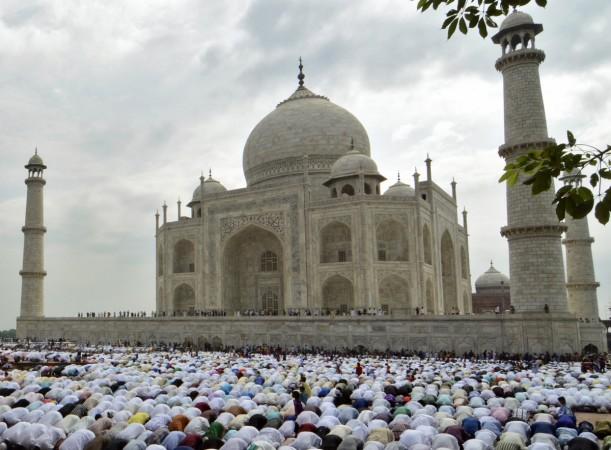
Eid al-Fitr, also known as Eid ul-Fitr or Eid, marks the end of the holy month of Ramadan and is marked by celebrations and joy across the Muslim community. It is that time of year when Muslims are rewarded for their undivided attention towards their lord by fasting, praying, charity and helping one another. While it is yet to be confirmed when Eid al-Fitr will be celebrated in different parts of the world, here are some key factors of Eid everyone must know.
Ramzaan Mubarak Special: 15 Most Beautiful Mosques Around the World
Eid al-Fitr is celebrated on the beginning of a new Islamic month of Shawwal, which is the 10th month in the Islamic calendar after Ramadan. The moon sighting committee in respective countries will announce the end of Ramadan after looking at the crescent moon. In most countries, including the U.S., U.K., Saudi Arabia and other Arab countries, Eid al-Fitr is celebrated on the same day, while countries such as India and Bangladesh will observe Eid on the next day due to their geographical locations.
Eid al-Fitr is translated as the "festival of ending the fast," but it is known by different terms, such as "feast of fasting," "smaller Eid," "Eid al-Saghir," "sugar feast," and "feast of fasting." On this day, Muslims greet each other by saying "Eid Mubarak" or "Happy Eid." People outside the Muslim community can also join the celebrations with these greetings.
How do Muslims celebrate Eid al-Fitr?
As Eid ul-Fitr marks the end of fasting, it is forbidden for Muslims to fast on this day. Instead, there is a special gathering in open grounds called Eidgah, where Muslims will perform the prayers of Eid. Before leaving for the Eid prayers, Muslims eat light breakfast, mostly comprising something sweet, such as dates, and recite praises of Allah in an audible tone during the commute.
The Eid prayers or "Salat al-Eid" is different from the five prayers Muslims perform throughout the year. There is no audible call for Eid prayers, but it consists of sermon followed by a congregational prayer, which is also different than the regular prayers.
It is mandatory that Muslims give sadaqah al-Fitr (charity of fast-breaking) before the Eid prayers. The aim of that is to ensure that the less fortunate are able to celebrate Eid in favourable conditions. As per Prophet Mohammed's teachings, it is recommended that Muslims choose different paths to and from the prayer grounds. It is customary to wake up early on the day of Eid, bathe and dress in the best attire before sunrise for the morning prayers of Fajr.
On Eid, Muslims must forgive and forget any differences or arguments that they had over the last year.
Technically, Eid al-Fitr lasts for one day, but the celebrations can last for up to three days. During these times, people visit their relatives and friends to convey Eid wishes. Family reunions and short holiday trips are planned to celebrate Eid.
Muslims also greet each other on the day of Eid with simple text messages and calls. Below are some Eid wishes you can send to your relatives, friends and co-workers on Eid al-Fitr.
Eid Mubarak!" -- ("Blessed Eid!")
"Taqabbala Allahu minna wa minkum." — ("May Allah accept from us, and from you.")
Hope Love & Laughter, warmth & wishes joy and a Bouquet of Eid Wishes, Especially for you!!! EID MUBARAK
Hope Love & Laughter. Warmth & wishes joy and a Bouquet of Eid Wishes, Especially for you!!! EID MUBARAK
May God send his Love like Sunshine in his warm and gentle ways to fill every corner of your Heart and filled your Life with a lot of Happiness like this EID DAY. Wishing you EID MUBARAK.
It's more than just an Eid wish, more than a message too. For it comes with warm and loving thoughts because it's meant for you.









